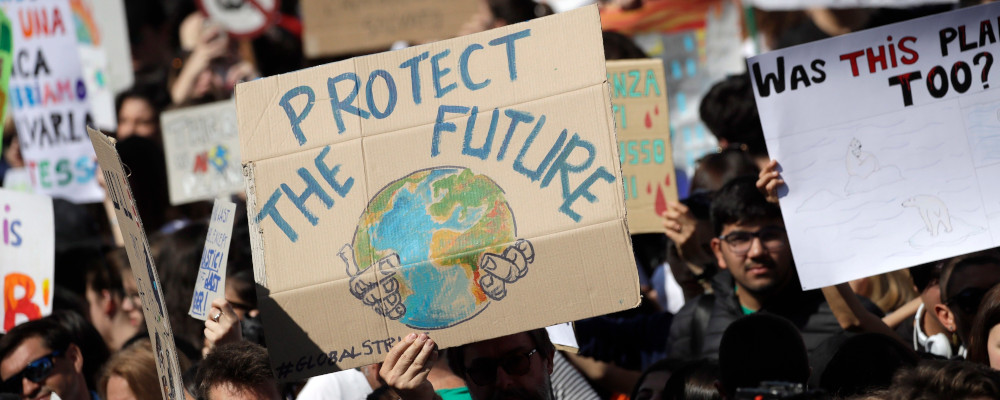Review of What We Owe the Future
Author: William MacAskill
Publisher: Basic Books, 2022
Life is full of problems. Enough of them to occupy all our time. From a looming worldwide recession and the environment to raising families and world conflicts. We now have another obligation: to worry about future generations. Not the immediate future that affects our kids and grandkids, but the distant future, hundreds of thousands of years from now.
That’s the message from What We Owe the Future by William MacAskill, a bright young ethics professor at Oxford University. Professor MacAskill has already earned considerable fame as a scholar; he’s also co-founder of the Centre for Effective Altruism and raised over $200 million for “effective” charities.“Effective altruism (EA) is a philosophical and social movement that advocates ‘using evidence and reason to figure out how to benefit others as much as possible, and taking action on that basis’.” https://en.wikipedia.org/wiki/Effective_altruism MacAskill makes a case for “longertermism,” a somewhat awkward word that stretches the meaning of the long-term out of all proportion.
He believes that the future is hugely important not only because future people matter, but what we do today can have a profound effect on those yet to come. And because we can make their lives better, we must help “steer the future onto a better course.” If future generations don’t have a vote on what we do now, MacAskill argues we should at least give our far-off descendants more consideration and stop over-discounting the future.
MacAskill asks us to consider how young our species is. Homo sapiens started 300,000 years ago. For every human alive today, ten have gone before. If humans should live to the average of typical mammalian species, 100 million years give or take, over the next 700,000, 80 trillion children are yet to be born. Wrap your head around that. We are the pioneers, the primitives at the very, very, very, very beginning of human history.
What can we do to make that inconceivable future better, given all the unimaginable directions it could take? First, we must reduce the odds of destroying ourselves by nuclear annihilation, environmental disaster, or pandemics. Second, we can attempt to ensure that correct “values” are embedded in future generations.
No one would disagree with the first point since it’s not a matter of protecting the future but a selfish desire to keep ourselves alive. The second is more interesting. MacAskill makes the interesting point that the values we’ve inherited and hold dear about individual rights, freedom of expression, and racial and gender equality aren’t necessarily guaranteed. He makes that case for what he calls “moments of plasticity.” These moments or occasions usually arise after times of social stress or wars where people come together to prevent past harmful behaviour.
MacAskill gives an example of the U.S. Constitution. It was written in a mere four months, yet the Bill of Rights was amended eleven times in the first six years. This is the moment of plasticity when things could change and improve. Amendments slowed considerably after that, making change harder. The last change was 50 years ago with the 27th Amendment. MacAskill’s point is that laws and norms are easier to change in the early stages. Wait too long, and our laws and moral codes solidify like molten glass.
Another case in point was slavery. Abolished more than 200 years ago, some argue slavery would have inevitably disappeared. Not so, according to MacAskill. Dominant wrong values often get “locked in,” persisting for long periods. The history of the twentieth century is a period where moral progress not only stopped but regressed, leading to Nazism and Stalinism, proving there’s nothing inevitable about moral progress. According to MacAskill, it’s vital that we “lock in” good moral values and pass them on before it’s too late. I assume he means encoding these values into law for later generations.
But are these arguments persuasive? We worry about future problems that await our children, grandchildren, and perhaps great-grandchildren, but our bandwidth for compassion is limited to only a few generations before it dissipates completely.
I admire MacAskill’s compassion for future generations, and he’s correct that we put too much emphasis on our immediate needs while undervaluing the needs of generations to follow. Small and good moral changes today could have profound benefits in the long term. But what does it mean for those living today to worry and sacrifice for homo sapiens hundreds, thousands, or millions of years in the future?
Philosopher Peter Singer has taught, and we’ve accepted, that saving a child on the other side of the world is just as valuable as saving a child in our own neighbourhood. That we understand. Aren’t we asking too much of our feeble goodwill to put the same value on lives still on the inconceivably distant horizon? And what makes us think our moral values are the ones future generations will want? Isn’t that imposing our form of “presentism” beyond our time?
Imagine the incomprehensible turns and twists of fate that could and will one day distort our notion of morality beyond our recognition. Our values are not set in stone. The future truly is a strange country.
Professor MacAskill ends with the cheery thought that if we get things right, our grandchildren’s grandchildren will thank us. If human nature is a guide—and most parents know this—the last thing we’ll get is gratitude.
Recommended for You

Michael Kaumeyer: Polite decline: Canada’s aversion to being our best is holding us back

Howard Anglin: Lament for a Lament

‘A place where anybody, from anywhere, can do anything’: The Hub celebrates Canada Day

Peter Menzies: It’s no wonder Canadians are tuning out the legacy media




